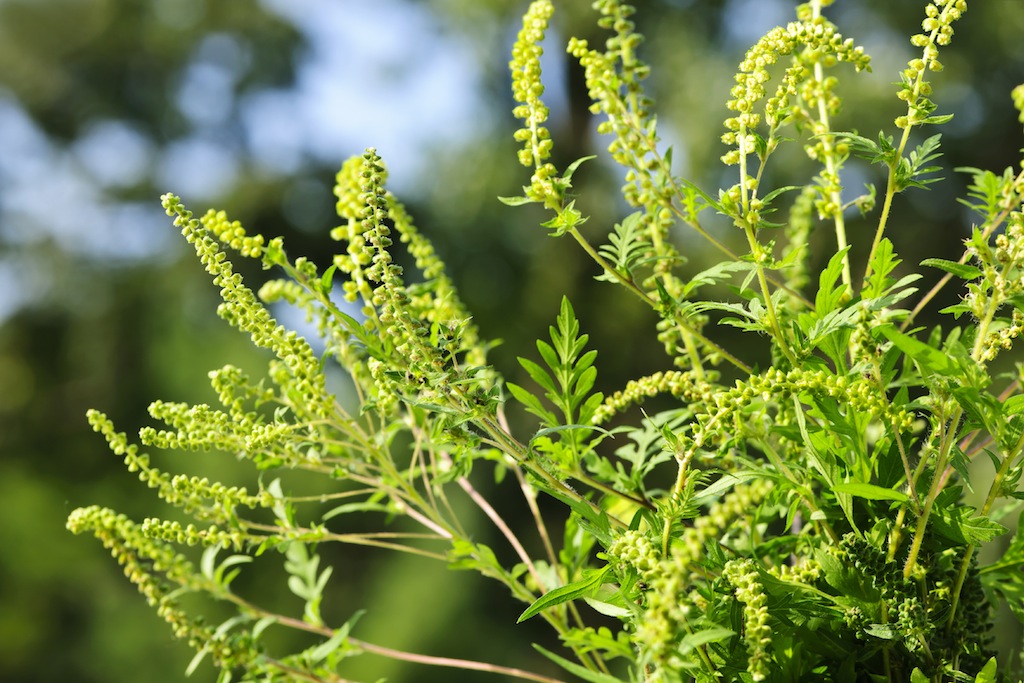This is ragweed, the most common culprit for fall allergies. It grows wild almost everywhere, but especially on the East Coast and in the Midwest. Ragweed blooms and releases pollen from August to November. In the southeast, we begin to see ragweed pollen as early as August with peak levels in mid-September.
Other plants that trigger fall allergies include:
- Cocklebur
- Nettle
- Dog-fennel
- Lamb’s-quarters
- Pigweed
- Sagebrush and mugwort
Many people who experience allergy symptoms in the fall assume that ragweed is to blame. Although ragweed is a major contributor to the pollen counts this time of year, your allergy symptoms may be caused by any of the plants that bloom in the fall. In addition to traditional fall weed pollens, in the Atlanta area, we have begun to see certain tree pollens as well. This may be due to the use of certain trees as ornamentals in landscaping. It is important to know your specific allergic triggers in order to properly treat your symptoms. An allergy skin test is the most accurate way to identify what is causing your symptoms. You may schedule an appointment with one of our board certified allergists to identify what you are allergic to and develop a treatment plan that will allow you to enjoy this fall season to the fullest!

